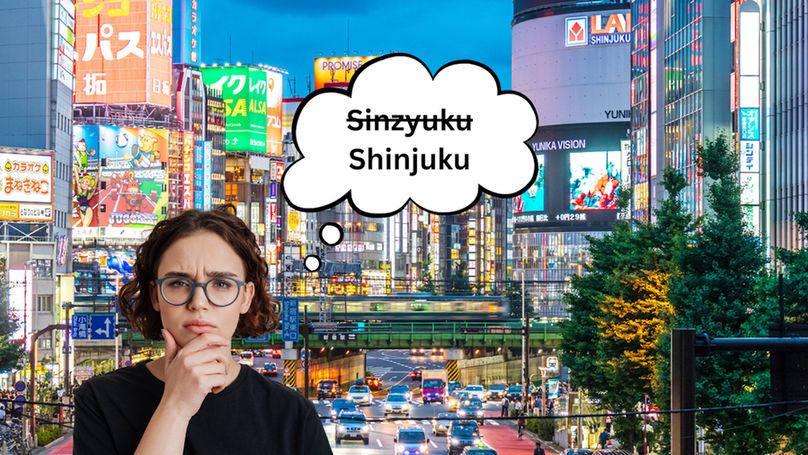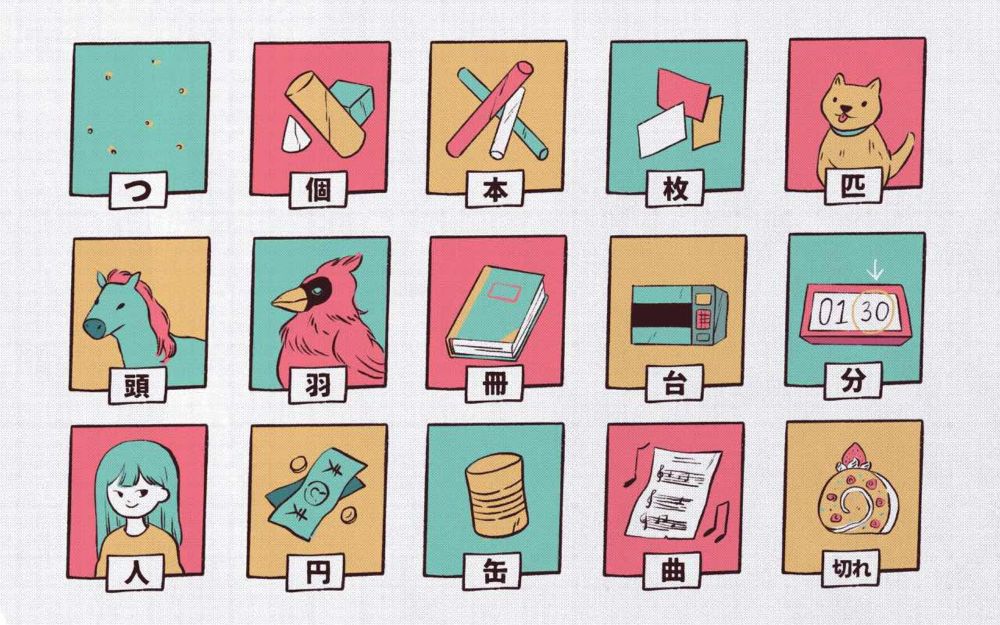I'll also be pausing kanji posting due to the lack of time I'll have to commit to studying. I'm hoping I'll be able to resume this activity once certain things are taken care of IRL.
24.03.2025 18:32 — 👍 2 🔁 0 💬 0 📌 0
Additional vocab:
引き • biki; -off (price reduction), discount
引く(hiku) can be used for to pull or to draw in terms of horse and carriage, attention or sympathy, to draw a card or mahjong tile, to draw a line or plan, to play a stringed instrument, or to subtract something, among other definitions.
21.03.2025 18:34 — 👍 0 🔁 0 💬 1 📌 0
🗓️ Kanji-a-day
2025年3月21日 (金)
引
🔊 in; hiki 📖 pulling
🔊 hi(ku) 📖 to pull, to draw
JLPTN3
福引き • fukubiki; lottery
引用 • in yō; quotation, citation
引き立て • hikitate; favor, patronage
21.03.2025 18:34 — 👍 0 🔁 0 💬 1 📌 0
Japanese dictionary search for "休"
113 words, 1 kanji and 876 sentences found. See the full details ...
While 「休」is usually meant for periods of rest, breaks, or a pause, it can also be used in conjunction with other kanji for a more negative meaning, such as suspension, absence, or cancellation.
jisho.org/search/%E4%B...
20.03.2025 12:09 — 👍 0 🔁 0 💬 0 📌 0
🗓️ Kanji-a-day
2025年3月20日 (木)
休
🔊 kyū; yasu(mi) 📖 rest, vacation
🔊 yasu(mu) 📖 to rest
JLPTN5
休憩 • kyūkei; rest, intermission
休日 • kyūjitsu; holiday
休養 • kyūyo; relaxation, recreation
20.03.2025 12:09 — 👍 0 🔁 0 💬 1 📌 0
Japanese dictionary search for "正"
468 words, 1 kanji and 1210 sentences found. See the full details ...
「正午 」(shōgo) is used for noon, which can be interpreted as the "true middle" of the day since 「午前」(gozen) is morning and「午後」(gogo) is for afternoon.
When you see 正, it's safe to assume that it has something to do with exactness, precision, formality, normalcy, or truth.
jisho.org/search/%E6%A...
19.03.2025 15:51 — 👍 0 🔁 0 💬 0 📌 0
🗓️ Kanji-a-day
2025年3月19日 (水)
正
🔊 sei, sho; tada(shii) 📖 correct, right
🔊 tada(su) 📖 to correct, to rectify
🔊 masa(ni) 📖 surely, truly
JLPTN4
正直 • shōjiki; honesty
正方形 • seihōkei; square (geometrical figure)
正月 • shōgatsu; New Year's
19.03.2025 15:51 — 👍 0 🔁 0 💬 1 📌 0
Another type of dictionary, specifically the one I've been using to study kanji, is called a 「字書」(jisho)—which is just a dictionary of Chinese characters. The second character in the sequence, 「書」(sho), is used for books, documents, letters, and for the starting kanji of "to write": 「書く」(kaku).
18.03.2025 12:17 — 👍 1 🔁 0 💬 0 📌 0
🗓️ Kanji-a-day
2025年3月18日 (火)
字
🔊 ji 📖 letter, mark
🔊 aza 📖 section (of a village)
JLPTN4
字引 • jibiki; dictionary
文字 • moji, monji; letter, character, ideograph
数字 • sūji; number, numeral
18.03.2025 12:17 — 👍 1 🔁 0 💬 1 📌 0
I learned most of my Japanese at a well-known US university that still used the Kunrei-shiki romanization system in the 2010s.
It was unnecessarily brutal and messed up some of my kana writing for things like チ (chi/ti, pronounced chi) vs ティ (actual ti). I'm so happy to read this.
17.03.2025 17:58 — 👍 0 🔁 0 💬 0 📌 0

Japan Prepares Official Hepburn Romanization Switch, Changing 70-Year Tradition - Unseen Japan
Japan will likely abandon its Kunrei-shiki romanization system that even most of its government doesn't use.
Do you spell Shinjuku as "Sinzyuku"? Of course not - only an insane person would. That's how you romanize it, however, under Japan's official Kunrei-shiki romanization system - a system that almost no one uses and that the Japanese government is, finally, preparing to abandon.
11.03.2025 20:37 — 👍 194 🔁 54 💬 13 📌 9
Japanese dictionary search for "文"
603 words, 1 kanji and 1052 sentences found. See the full details ...
Some more fun words with 「文」:
文句 • monku; complaint, grumbling, objection
文房具 • bunbougu; stationery
文字 • moji; letter (of an alphabet), character
Find more, here:
jisho.org/search/%E6%9...
17.03.2025 17:48 — 👍 0 🔁 0 💬 0 📌 0
🗓️ Kanji-a-day
2025年3月17日 (月)
文
🔊 bun 📖 writings; a sentence
🔊 mon 📖 old unit of money
🔊 fumi 📖 letter; book
JLPTN4
文化 • bunka; culture
文学 • bungaku; literature
文部大臣 • Monbudaijin; Minister of Education
17.03.2025 17:48 — 👍 0 🔁 0 💬 1 📌 0
Japanese dictionary search for "本"
493 words, 1 kanji and 5244 sentences found. See the full details ...
「本棚」(hondana) is another word that looks similar to bookcase—it's actually for bookshelf, though it does have bookcase as one of its possible meanings.
And 「本物」(honmono) means "genuine article" or "real thing/the real deal".
Other 本 uses:
jisho.org/search/%E6%9...
17.03.2025 17:41 — 👍 1 🔁 0 💬 0 📌 0
🗓️ Kanji-a-day
2025年3月15日 (日)
本
🔊 hon 📖 book; suffix for counting long, slender objects
🔊 moto 📖 basis; essence; (tree) root
JLPTN5
一本 • ippon; one (bottle, rod, etc)
本箱 • honbako; bookcase
日本 • Nihon, Nippon; Japan
17.03.2025 17:41 — 👍 1 🔁 0 💬 1 📌 0
There will be a double kanji post today! I haven't forgotten! It's just been bit busy yesterday and today 🖤
17.03.2025 12:59 — 👍 1 🔁 0 💬 0 📌 0
Jisho.org: Japanese Dictionary
「糸口」can also mean beginning/start/first step, that can be used similarly to the phrase "break the ice"/"ice breaker" in English.
jisho.org/word/%E7%B3%...
15.03.2025 16:26 — 👍 0 🔁 0 💬 0 📌 0
🗓️ Kanji-a-day
2025年3月15日 (土)
糸
🔊 shi; ito
📖 thread
JLPTN2
毛糸 • keito; woolen yarn
糸口 • itoguchi; clue
糸巻 • itomaki; spool for thread
15.03.2025 16:26 — 👍 0 🔁 0 💬 1 📌 0
Jisho.org: Japanese Dictionary
「虫」can also be "nervousness", "fretfulness" or a "person devoted to one thing".
Probably the most interesting definition is the one that is probably closest to saying, in English, that there's something "rotten" or "wrong" with someone.
You can find more here:
jisho.org/word/%E8%99%AB
14.03.2025 12:24 — 👍 0 🔁 0 💬 0 📌 0
🗓️ Kanji-a-day
2025年3月14日 (金)
虫
🔊 chū; mushi
📖 insect, bug, worm
JLPTN2
害虫 • gaichū; harmful insect
虫歯 • mushiba; decayed tooth
昆虫 • konchū; insect, bug
14.03.2025 12:24 — 👍 0 🔁 0 💬 1 📌 0
Jisho.org: Japanese Dictionary
Apparently, instead of the English phrases like "fighting like cats and dogs", Japan uses 「犬と猿」and 「猿」means "monkey".
I found a couple of instances of "dogs and monkeys" being used as relational opposites for today's fun fact:
「犬と猿」
jisho.org/word/%E7%8A%...
「犬猿の仲」
jisho.org/word/%E7%8A%...
13.03.2025 12:49 — 👍 2 🔁 0 💬 0 📌 0
🗓️ Kanji-a-day
2025年3月13日 (木)
犬
🔊 ken; inu
📖 dog
JLPTN4
小犬 • ko-inu; puppy
番犬 • banken; watchdog
狂犬病 • kyōkenbyō
13.03.2025 12:49 — 👍 3 🔁 0 💬 1 📌 0

350 Japanese Counters Grouped by Usefulness
We've put together a list of 350 Japanese counters grouped by usefulness. That way, you can learn the counters that get used most often.
Additional uses for 「石」:
石 • ishi; jewel, precious stone
石 • koku; unit of measurement (approx. 180.4 liters)
石 • seki; counter for jewels in a watch or for transistors, diodes, etc in electronic products*
*Japanese has different counters for many items:
www.tofugu.com/japanese/jap...
12.03.2025 12:29 — 👍 2 🔁 0 💬 0 📌 0
🗓️ Kanji-a-day
2025年3月12日 (水)
石
🔊 seki, koku, shaku; ishi
📖 stone
JLPTN3
小石 • ko-ishi; pebble
石炭 • sekitan; coal
磁石 • jishaku; magnet
12.03.2025 12:29 — 👍 1 🔁 0 💬 1 📌 0
Outside of rural areas, first floor apartment units also tend to have the issue of larger spiders getting inside.
From what I've been seeing, these units end up being a bit cheaper as well since there's concerns of flooding, higher noise pollution and other bugs.
So proceed with caution. 🙂
11.03.2025 12:14 — 👍 0 🔁 0 💬 0 📌 0
General tip today for those considering moving to Japan instead of the typical sentence build:
If you're not a fan of くも (kumo; spiders), then beware of bamboo being too close to your place of residence, specifically in more rural areas since they often make webs in bamboo forests.
11.03.2025 12:14 — 👍 1 🔁 0 💬 1 📌 0
🗓️ Kanji-a-day
2025年3月11日 (火)
竹
🔊 chiku; take
📖 bamboo
JLPTN2
竹藪 • takeyabu; bamboo grove
竹細工 • takezaiku; bamboo ware
竹籠 • takekago; bamboo basket
11.03.2025 12:14 — 👍 1 🔁 0 💬 1 📌 0
花火はとても騒々しいから好きじゃないです。
I don't really enjoy like fireworks because they're so loud.
Bonus vocab:
騒々しい • souzoushii; noisy, loud
10.03.2025 17:07 — 👍 0 🔁 0 💬 0 📌 0
🗓️ Kanji-a-day
2025年3月10日 (月)
花
🔊 ka; hana
📖 flower
JLPTN4
花屋 • hanaya; flower shop, florist
花瓶 • kabin; vase
花火 • hanabi; fireworks
10.03.2025 17:07 — 👍 0 🔁 0 💬 1 📌 0
Explore the best of Japan with us! Follow for event updates, travel guides, and insider tips. Hokkaido to Okinawa, we've got it all. https://hey-japan.com
Tips and tricks for learning Japanese language through novels, manga, anime, podcasts, etc.
(JLPT N1. Translator. Live in Osaka, Japan.)
Don't just study Japanese, use it!
勉強だけでなく日本語は、使えば使うほど上手になるんです。
🇯🇵 jtalkonline.com
☕️ https://ko-fi.com/G2G5AEBW
Writer on Japan. Living my best life in Tokyo. Militant bisexual. Pagan/Buddhist. 日本在留アメリカ人男性
https://unseen-japan.com
東京を中心に飲食店やホテル・観光スポットなどなど紹介していきます。
We will introduce you to some wonderful sightseeing spots and hotels in Japan.
My name is Kazuki and I live in Japan. Thank you.
It's a translation so I'm sorry if there are any weird parts.
#tokyo #japan
News, features and commentary from the oldest (est. 1897) and most widely read English-language media outlet in Japan.
JT staff on Bluesky: https://jtim.es/bskysp
Our newsletters: https://jtime.es/newsletters
Elsewhere: jtim.es/m/social
任天堂からのお知らせや、ホームページの更新情報をお伝えします。 ご質問・お問い合わせにはお答えしておりませんのでご容赦ください。
(Unofficial account. This account reposts everything tweeted by @Nintendo until they officially join BlueSky.)
The Japan you don't learn about in anime. News and social issues from Japan. Visiting Japan soon? Check out our tours service!
https://unseen-japan.com
🖋️ sff indie author
🧁 sweet relationship peddler
♾️🌈♠️ autistic nonbinary asexual
✨ they/them
🖤🩸 FAMILIAR (OCT 28, 2025)
💎🪐 NOVA RICHE (TBD)
🗡️🍂 ATOWAR (TBD)
all links ➡️ go.cara.ink
books ➡️ caranox.com/books
avatar ✦ @ashsketchem.bsky.social
official Bluesky account (check username👆)
Bugs, feature requests, feedback: support@bsky.app

